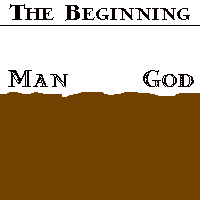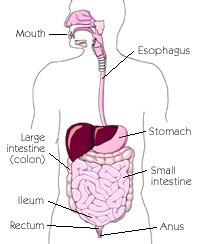|
|
|||||||||||||||||||||||||||||||||||||||
|
"Behold, I stand at the door and knock. If anyone hears My voice and opens the door, I will come in to him and dine with him, and he with Me." Rev. 3: 20
By Chev. Dr. Mathews Abraham
Fasting is one of the longest established disciplines of the human body. Fasting literally means a total or partial abstinence from food for a certain period of time, usually undertaken for religious or moral reasons. The equivalent word in Syriac is “Saumo”, in Malayalam “Noimbu” and in Arabic “Saum”. Nearly all religions promote or sanction fasting in some form or another. In primal religions it is often a means to control or appease gods, a way to produce virility, or preparation for a ceremonial observance, such as initiation or mourning. Many eastern religions use it to gain clarity of vision and mystical insights. Judaism, Christianity and Islam all have fixed fast days, and usually associate fasting with the discipline of the flesh, repentance for sins and almsgiving. Fasting appears early as an act of devotion among the Jewish people, but without the formalized rules, which developed later. Old Testament mentions many special public and private fasts, usually coupled with prayer to signify mourning, to show repentance and remorse, or to demonstrate serious concern before God. The names of Moses, Elijah, and David are remembered in this regard. However, fasting that was not accompanied by genuine repentance and righteous deeds were denounced as an empty legal observance by the prophets. Our Lord Himself fasted for forty days during His wilderness experience as preparation for His formal ministry. Our Lord showed us the need for fasting and taught us how to fast. “Moreover when ye fast, be not, as the hypocrites, of a sad countenance: for they disfigure their faces, that they may appear unto men to fast. Verily I say unto you, They have their reward. But thou, when you fastest, anoint your head, and wash thy face; That thou appear not unto men to fast, but unto your Father which is in secret: and your Father, which sees in secret, shall reward you openly.” (Matthew 6:16 -18) The New Testament mentions of fasting by the disciples of John the Baptist. The Apostles fasted and prayed before they anointed the ministers (Acts 13:3, 14:23). The Apostles and early Church Fathers emphasized the importance of fasting and prayer and the early Christians apparently followed the Jewish custom of fasting and prayer on Mondays and Thursday until around the end of the first century when Wednesdays and Fridays were observed. “Do not scorn the Forty Day Fast”, writes Saint Ignatius of Antioch (martyred AD 117) to the Philippians. The Teutonic word Lent, which we employ to denote the forty days' fast preceding Easter, originally meant no more than the spring season. Since Easter was celebrated in the spring season, the fasting preceding Easter began to be called Lent. All churches that have a continuous history extending before AD 1500 observe Lent. The ancient church that wrote, collected, canonized, and propagated the New Testament also observed Lent, believing it to be a commandment from our Lord and the Apostles The Syrian Orthodox Church observes fast on all Wednesdays and Fridays except those between Qyomto (Easter) and Pentecost and also on five other occasions. The largest of them is the 50 day Lent culminating at the day of our Lord’s resurrection. Others are 25 days before Christmas, 13 days in honor of the Apostles, 15 days before the Ascension of the Mother of God, and 3 days of Nineveh. These periods are to be observed with fasting and prayer till 3 pm and the faithful are required to abstain from meat, fish, and dairy products during the rest of the day. These fasts are obligatory for every believer but relaxation is allowed according to geographical and socio-economic circumstances of the faithful MEDICAL BENEFITS OF FASTING Fasting and restriction of certain food items in the diet have many good effects on the human body. In fact, many of the alternative medical practitioners earn their bread and butter on dietary advice alone. Obesity is an increasing problem in the developed world and has substantial health effects. In the western world, 50% of the adult population is overweight and 20% are obese. Fat deposition results from the discrepancy between energy consumption and expenditure. Once weight has been gained, it is very unusual to lose it spontaneously before the age of 65. Obesity has effects on both mortality and morbidity of the population. Coronary heart disease is the major cause of death but cancer rates also increase in the overweight. Medical
complications of weight gain are summarized as below. · Diabetics
|
|



